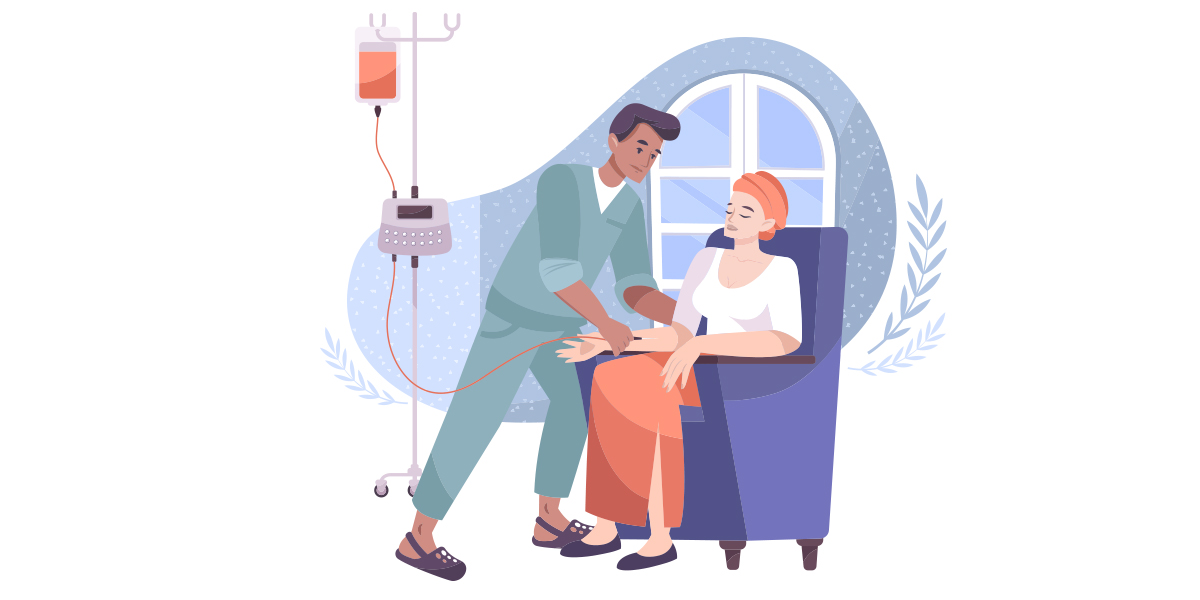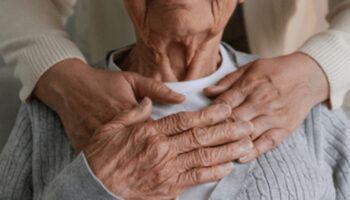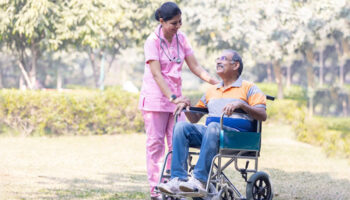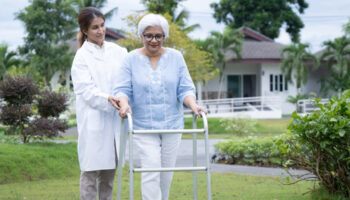Being diagnosed with cancer can fritter life itself. It’s a long battle, extremely exhaustive, physically tiring, and emotionally draining, but nothing should stop one from fighting it.
What cures cancer? Ask any cancer survivor and the answer will be — treatment and emotional support from the people he or she loves.
Battling cancer is never the survivor’s job alone. The medical team, family members, the atmosphere, and now the assisted living facilities that offer cancer support.
Cancer Care and Assisted Living
Assisted living is a concept that has grown exponentially in the past decade in India, thanks to the extensive awareness in the senior communities.
Offering life quality-enhancing living solutions for seniors, these modern senior living homes have now ventured into managing cancer in older adults out of these facilities.
The cancer care team at assisted living facilities involves in-house doctors, skilled nursing care specialists, basic nursing staff, and personal attendants.
The caregiving team at assisted living manages oral medication, injections, intravenous chemotherapy, and suppository therapies.
Most of the care offered at assisted living comes under managing cancer by providing clinical support and the major treatment for cancer is still offered out of hospitals.
Hospitals and The Cancer Care
Cancer in a nutshell, is the development of abnormal cells in the body that can spread to various organs.
Cancer is the second-leading cause of death in today’s world. However, the survivor rate is increasing these days, thanks to advanced screening measures, treatment options, and support systems like assisted living facilities.
Early detection of cancer is key in achieving the desired treatment outcomes. Here are a few general cancer symptoms that one should be aware of.
The Symptoms of Cancer
Based on the origin of cancer in the body, the signs and symptoms may vary. However, most cancers show these symptoms in general.
- Sudden weight loss or gain associated with fatigue or tiredness that lasts for weeks
- Visible skin changes with yellow or dark spots and thickening under the skin
- Bleeding or bruising on the skin for unexplainable reasons
- Breathing issues and cough that worsens over time
- Muscle or joint pain for unexplainable reasons
Sometimes, the person might show none of these symptoms, and the cancer is detected during the diagnosis of other conditions.
Cancer Treatment
Cancer treatment involves surgery, chemotherapy, radiation therapy, hormone therapy. There is no particular treatment process for cancer, and it is entirely based on the stage.
When it comes to treating cancer, it all boils down to the goal of treatment. Here are a few treatment goals listed down below.
- Cure
- The goal is to remove cancerous cells and cure the person to live a regular life.
- This is achievable in the early detection of cancer cells, depending on various other factors.
2.Primary Treatment
- The treatment approach involves various methods starting from surgery to remove cancer cells completely from the body.
- Cancer specialists employ surgery, chemotherapy or radiation therapies, or combinations of them to remove cancer cells.
3.Adjuvant Treatment
- Followed by the primary treatment, doctors use adjuvant treatment methods to remove the remaining cancer cells after the primary treatment.
- The therapies focus on addressing and reducing the conditions that may cause recurrence.
4.Palliative Treatment
- Palliative care or treatment is offered when the other treatment methods fail. This care provides much-needed relief from the symptoms of cancer.
- With the advanced equipment and skilled professionals, palliative care is being offered at many assisted living facilities and skilled nursing care facilities.
The cancer care out of assisted living also depends on the type of cancer, age, gender, and stage of cancer. Here are the common cancer types among the elderly.
- Breast Cancer – Age is one of the risk factors of breast cancer in old age. However, not every lump in the breast is cancerous.
- Prostate Cancer – Seniors above 60 have 20% of increased chances of prostate cancer because of their age.
- Lung Cancer – Long-term smoking and exposure to chemicals can lead to lung cancer in older age.
- Bowel Cancer – Also known as colon cancer, bowel cancer is a type observed in seniors above 60.
- Bladder Cancer – Another cancer type that is common in older age. In fact, 90% of people diagnosed with bladder cancer are above 55 years old.
The Role of Assisted Living in Cancer Care
Starting from analyzing your day-to-day progress, medications, observing side-effects, to providing emotional support and boosting morale, assisted living facilities are playing a crucial role in cancer care for seniors.
- Help in staying positive with mindful activities like meditation and yoga
- Providing preferred diet, help in engaging favorite activities
- Help seniors socialize with fellow residents
- Organize and manage oral medications
- Maintain the medical diary
That’s not all. Visit Athulya Assisted Living in Chennai to understand the overall support offered to seniors with cancer.





